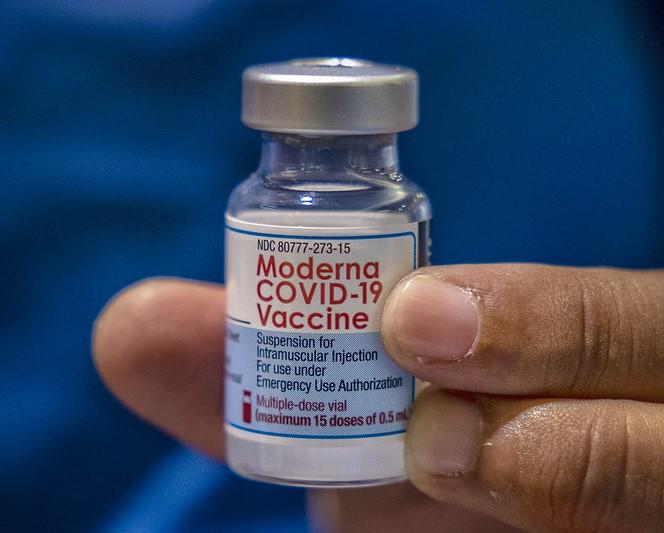The US Food and Drug Administration (FDA) today announced that it has approved the emergency use of updated COVID-19 vaccines that more closely target circulating strains, setting the stage for tomorrow's discussion on recommendations by the Centers for Disease Control and Prevention (CDC) vaccine advisory group.
The FDA's approval today covers the two mRNA vaccines, one from Moderna and the other from Pfizer-BioNTech.
The agency is still reviewing an updated vaccine from Novavax, made with a more traditional cell-based process. That vaccine includes the company's proprietary matrix M adjuvant to boost the body's immune response.
In a statement, Novavax said doses of its vaccine arrived in the United States today and will be ready for release as soon as the FDA grants approval. The company added that it will present the latest data on the vaccine at tomorrow's meeting of the CDC's Advisory Committee on Immunization Practices (ACIP).
Updates target XBB.1.5 amid changing variant landscape
In the middle of June, after recommendations from its vaccine advisers, the FDA asked vaccine makers to develop single-strain vaccines that target the XBB.1.5 Omicron variant. Since then, proportions of newer Omicron variants such as EG.5 have been increasing, alongside a slow rise—from very low levels—in COVID activity that has continued for the past 9 weeks.
In the middle of August, all three vaccine makers said their preliminary findings suggest the updated vaccines prompted a rise in neutralizing antibodies against newer variants such as EG.5, FL.1.5.1, and XBB.1.16.6
At about the same time, variant trackers identified the highly mutated BA.2.86 variant, which raised concerns about how well the new vaccines would neutralize the virus. The United Kingdom in late August announced that it was speeding up the rollout of the newer vaccines, a precaution as scientists size up the threat from BA.2.86.
Early lab experiments, however, suggest the newer virus may be less immune-evasive than originally feared. And a few days ago, Moderna said its clinical work suggests the updated vaccine shows a strong response against BA.2.86, with Pfizer announcing similar findings from preclinical findings.
Today's FDA approval said anyone age 5 and older, regardless of previous vaccination, are eligible for one dose of the updated mRNA vaccine, with more fine-tuned recommendations for kids ages 6 months through 4 years old, depending on previous immunization.
We very much encourage those who are eligible to consider getting vaccinated.
The group said it is confident in the safety and effectiveness of the vaccines, and that its risk-benefit analysis shows that the benefits outweigh the risks. The FDA added that the side-effect profile for the updated vaccines is similar that of earlier mRNA vaccines.
Peter Marks, MD, who directs the FDA's Center for Biologics Evaluation and Research, said, "Vaccination remains critical to public health and continued protection against serious consequences of COVID-19, including hospitalization and death." He added that the vaccines have met the FDA's rigorous safety, effectiveness, and manufacturing quality standards.
"We very much encourage those who are eligible to consider getting vaccinated."
CDC reassured by BA.2.86 immunology findings
In a September 8 update on BA.2.86, the CDC said it is encouraged by findings from multiple labs showing that existing antibodies from earlier vaccination or infection work against the BA.2.86 variant, which it says bodes well for the updated vaccines.
"Real-world data are needed to fully understand the impact given the complexities of the immune response to this variant. Additional studies on this are ongoing, and we expect to learn more in upcoming weeks," it said.
The CDC said so far, BA.2.86 has been identified in patients from nine states, with wastewater detections in Ohio and New York. Health officials are also investigating one more human case. The agency added that its risk assessment hasn't changed since its August 30 update.





















